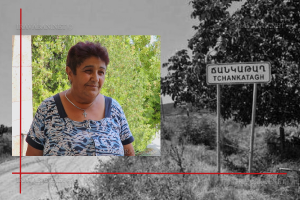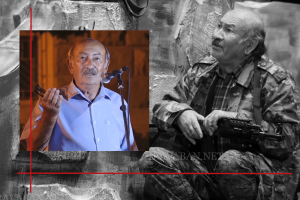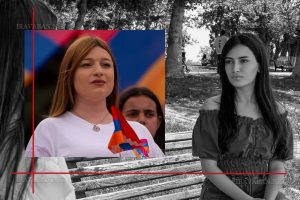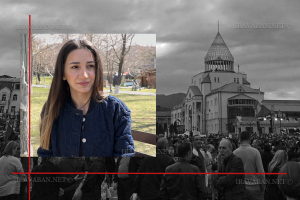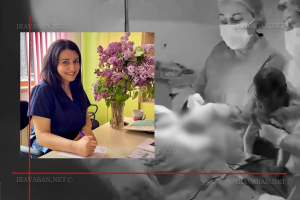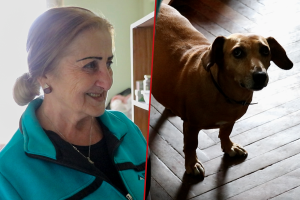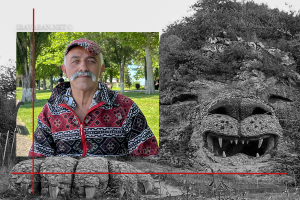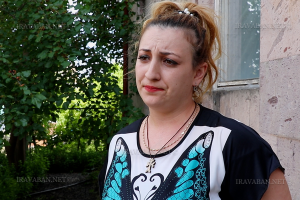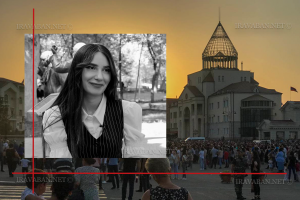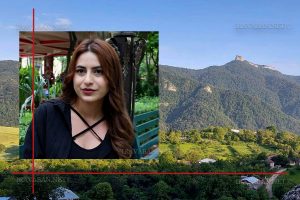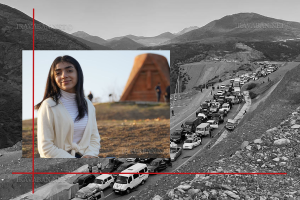Venera Avetisyan was born in Sumgait, she had to flee from there together with her mother, when the genocide and mass deportations of the Armenian population organized by the Azerbaijani authorities at the state level began in the city. In 1988, she moved to Stepanakert with his mother. She told in the framework of “Artsakh: Armenian Genocide 2023. Stories of Survivors” documentary project of Iravaban.net about the difficulties they went through while fleeing from Azerbaijan and settling in Artsakh.
Mother urged Venera to speak only in Azerbaijani, so that the Azerbaijanis would not touch them.
“I was 14 years old then, I didn’t fully understand why all this was happening, why Armenians were being killed. When I came to Stepanakert, I began to study the history of Armenia, I learned about the year 1915. In Sumgait, we studied the history of the USSR, but all that was not mentioned. When I came, I began to study, I saw that our ancient people are tormented, they have been tormented for centuries,” she says.
They were warmly received in Stepanakert. During the first Artsakh war, Venera lost her only brother. Then she finished school and entered the university. At first, she worked at the Artsakh Foreign Ministry, then she began to serve in the Defense Army in the financial field.
“I didn’t want to leave Stepanakert until the last moment. My husband and children forced me to leave. Then I remembered the massacres in Sumgait; the Azerbaijanies had cur\t off the ears of one of the men. During the days of massacres, I remember when there was a knock at our door, my mother thought it were the Azerbaijanis. She took the knife and ran towards me, she wanted to kill me. Now I understand. When those who knocked at the door said that they were Russian troops, Garbachov sent them to isolate us: only after that my mother put down the knife, kissed me, and opened the door. I later realized that she wanted to kill me so that I would not fall into the hands of the Azerbaijanis, I was only 14 years old,” Venera says.
During the shelling on 19 and 20 September, one of the shells fell into the yard of their house. On the way to Armenia, she met Azerbaijanis only at the checkpoint near Hakari Bridge. They checked the car and let them pass. “They have changed a lot, they are not the Azerbaijanis I knew in 1988.”
Venera left her house, apartment and property in Artsakh. But she says that all that is not worth human lives.
“My children and grandchildren are by my side, I am satisfied with that. Only let there be peace.”
“Artsakh: Armenian Genocide 2023. Stories of Survivors” documentary project of Iravaban.net is aimed at collecting the memories and testimonies of citizens forcibly displaced from Artsakh occupied by Azerbaijan, about the genocide of the Armenians of Artsakh committed by Azerbaijan, atrocities, the days of war, the path of deportation, etc.
Iravaban.net seeks help from citizens who will voluntarily agree to translate materials into different languages: Russian, English, French, Arabic, Persian, Turkish, Georgian, Chinese…
You can write to our e-mail address at: [email protected]

